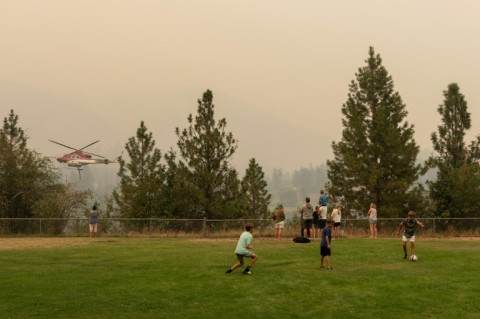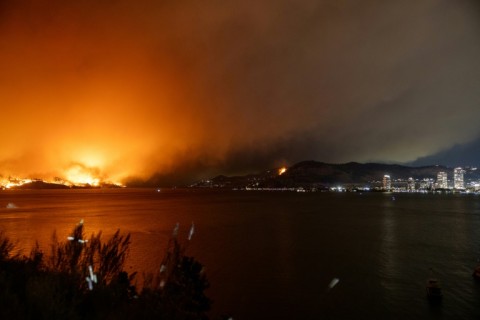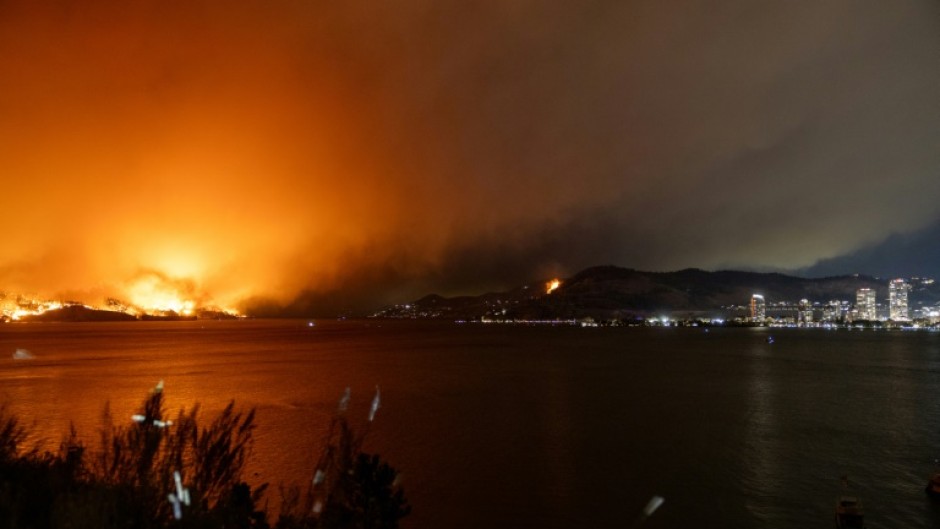With its lakes, mountains and endless rows of pine trees covered in a thick haze, the Canadian town of West Kelowna was on edge Sunday as residents either evacuated or prepared to do so.
"We are ready to run," Matt Ekman, 37, told AFP.
He and his wife Shani moved to the city of around 30,000 just 14 months ago. They've since moved in with relatives in town, fearing their home might get caught in the approaching blaze, though it's still standing.
"And it's steadily more optimistic since then. But anything can happen," says Shani, who packed her wedding dress as well as passports and changes of clothes.
The dueling senses of unease and preparedness permeated the western Canadian city Sunday, with life coming to a near standstill as ash fell from the sky and smoke reduced visibility.
Thousands in the surrounding area and some neighborhoods of West Kelowna -- like the Ekmans -- have already been evacuated and are staying in shelters and hotels or with friends or family, while the rest of the city awaits to see if the nearby fires will spark full-scale orders to flee.
Some residents, most without masks despite the poor air quality, walked on the sidewalks with their dogs. A few cars drove -- with their lights on -- and several roads were closed.

The silence in the streets was occasionally broken by the odd bird.
Visibility was almost zero after just a few meters, and instructions were issued not to drink tap water, even if boiled.
Firefighters are battling two massive fires that merged in the region, damage from which authorities have not yet been able to tally.
Greg Heck, a longtime area resident, is no stranger to wildfires.
But this is "the fiercest one I've ever seen," he told AFP, looking over at Shannon Lake, where helicopters were loading up on water to tackle the blaze.
Together with his wife, Heck, a former emergency services employee, packed a week's worth of clothes and medicine.
"We are ready (to flee)... but let's hope it doesn't get to that," he said.
The fires dominate conversations in the town's few open bars and hotels, where many evacuees have holed up.

Despite the threat, those who spoke to AFP consider themselves lucky that they've had time to prepare in case of an evacuation.
"Once an hour, I'll just go on and make sure that we're still just on alert, and checking social media to... make sure friends and family are safe," said Tina Gilmore, as she walked her dog amid the haze.
"Everyone's doing a great job."
pr/nro/dw
By Paula Ramon

